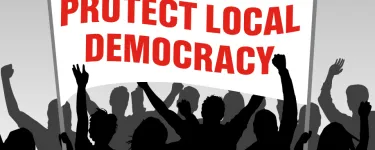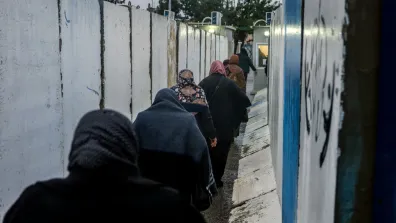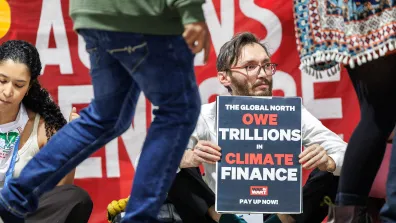What does the government’s ‘boycott ban’ really mean?

On 14 February the Sunday Times reported that Cabinet Minister Matt Hancock would announce new procurement guidance for public authorities. That article, along with a flurry of follow-ups, suggested that the new guidance would criminalise and penalise boycotting institutions, and that these new regulations would apply to university student unions as well as public institutions. The press went wild with the story and started to use the term ‘boycott ban’.
The articles were speculative; they were written before the government issued the guidance.
Three days later, the guidance went up on the government website. We saw for the first time what was actually changed and how this new ‘ban’ would be implemented. We pored over the document, compared it with what’s already on the books, talked to trade experts and the sharpest legal minds, and came up with a surprising conclusion: there is nothing new in the new procurement guidance aside from some overblown rhetoric clearly intended to scare campaigners.
In other words, the boycott ban does not actually ban all boycotts.
However, there IS a dangerous set of new regulations that will ban local council divestment, and this ban requires a hearty fightback from campaigners, councillors and others. I’ll come back to that at the end of this note, but first let us dissect the new procurement guidance:
1. How does the new procurement guidance criminalise boycotts?
It doesn’t. This notion came from a colourful headline in the Independent from before the guidance was published.
The guidance states that boycotts in public procurement are “inappropriate”. But it then goes on to affirm that according to the Public Contract Regulations (PCR) 2015, public authorities can “take account of wider matters in the procurement process, such as social and environmental factors.” Those factors would certainly include violations of international law, human rights abuses, labour rights violations, environmental degradation and more.
2. Are there penalties for boycotts?
Under the current rules there are not penalties for excluding companies from contracts based on social and environmental factors, and no new penalties were introduced in the guidance.
The new guidance summaries the UK PCR 2015 procurement rules, which stem from the WTO Government Procurement Agreement (first signed in 1994) stipulating that suppliers must be treated equally in procurement processes, and cannot be excluded simply because of country of origin.
The new guidance goes on to say in section 5: ‘There are remedies available through the courts for breaches of these rules, such as damages, fines and ineffectiveness’, and then ‘This can lead to formal action being required to rectify the breach, and substantial fines against the Government’. And then later (section 7): ‘As highlighted earlier, it can also be unlawful and lead to severe penalties against the contracting authority and the Government.’
These penalties are nothing new. They come from the WTO Agreement, which by now has been analysed thoroughly by trade and legal experts for many years. The WTO Agreement absolutely allows for boycotts/exclusions of companies based on their practices, just not based arbitrarily on their countries of origin.
When we call for boycotts of companies, it is based on those companies’ practices of complicity in violations of international law and human rights (or other such ethical concerns). That has been the case for years, and is fully in line with the WTO Agreement, as well as the PCR 2015.
3. What implications would any of this have on student unions?
None. Student unions fall under a totally separate category than public authorities do, as they are technically charities.
4. So what is new in the government’s guidance on procurement?
What is new is the inflammatory language against the BDS movement in the government’s press release and in the guidance document. It is clearly designed to have a chilling effect on boycott campaigns, and to satisfy the Israeli government that is demanding and, in some cases, bankrolling crackdowns on BDS around the world.
Hancock announced the procurement guidelines from Israel where he was visiting at the time, showing the extent to which demonstrating hard lines on BDS is a political performance as much as anything else. The Israeli government is also on overdrive cracking down on Palestinian human rights defenders, and even Israeli leftists.
5. So is the ‘attack on local democracy’ much ado about nothing?
No. There IS a serious attack on local democracy in the new local authority pension regulations proposed by the government in November 2015. Unlike the procurement guidance discussed here, the proposed pension regulations give the government new power to veto decisions on investment made locally.
This is truly a dangerous precedent and a serious attack on local democracy. It was proposed using the same language as the procurement guidance, but in the case of investment, it is actually backed up by real changes to the way local authorities are allowed to run their investments.
Our campaign to protect local democracy is already underway, led by an incredible coalition of groups active on a broad range of issues. In less than one month, over 25,000 people submitted responses to an official government consultation on the new proposal, saying no to this attack.
The consultation period ended on 19 February, but this is just the beginning of our campaign to protect local democracy.


